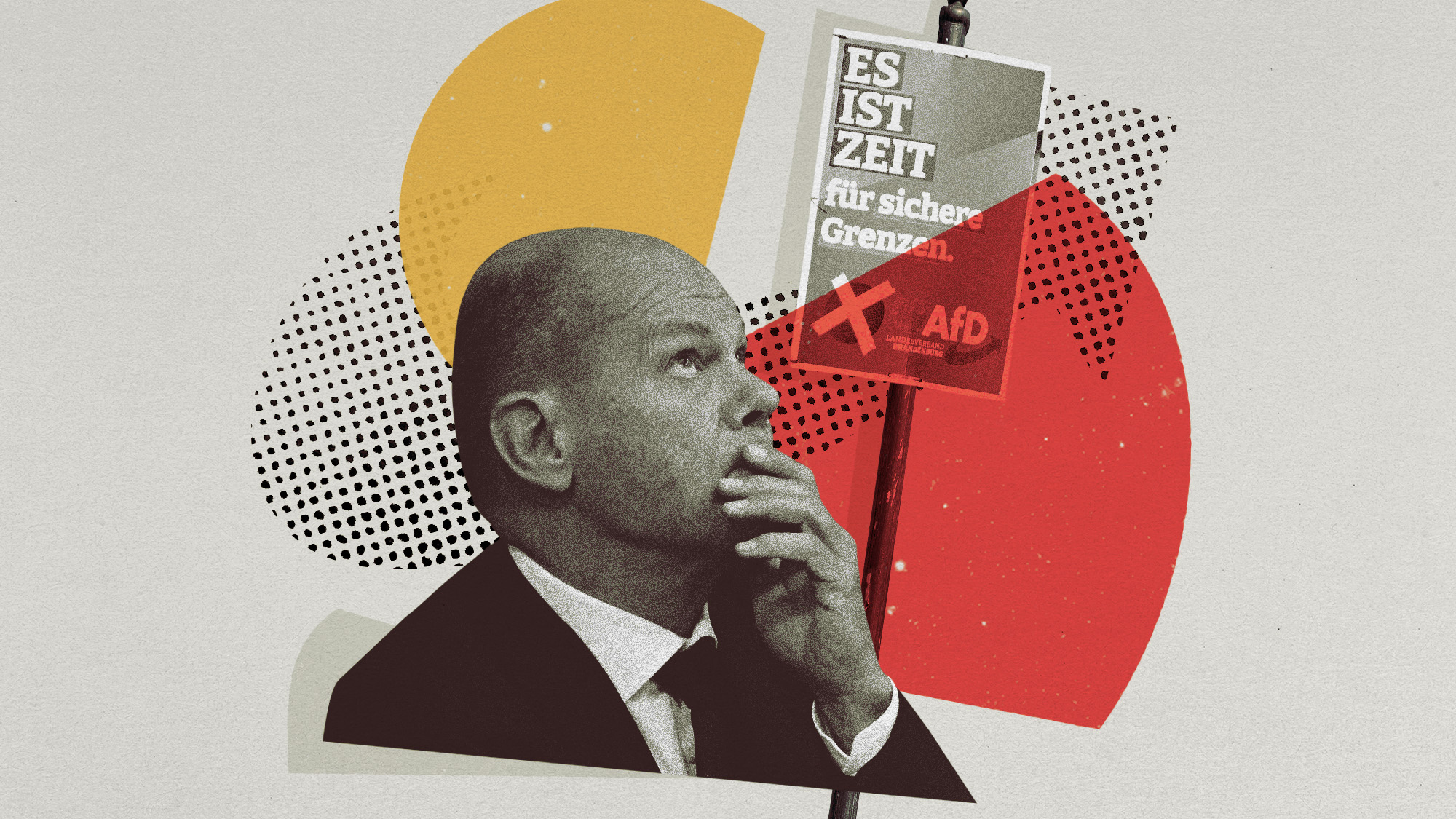Why is Germany cracking down on migration?
New border rules test the European Union


A free daily email with the biggest news stories of the day – and the best features from TheWeek.com
You are now subscribed
Your newsletter sign-up was successful
Germany isn't building walls to put an end to mass migration. But the country is tightening its borders — and prompting a fresh debate about the future of the European Union.
The new border controls have "put the unity of the European bloc to the test," said CNN. Under EU rules that allow European citizens to travel visa-free between countries, member states can "temporarily" restrict border crossings in the event of a "serious threat" — and the move must be a last resort. The crackdown comes after a Syrian man linked to ISIS killed three people in Solingen in August. But security may not be the only concern: Chancellor Olaf Scholz has come under pressure amid the rise of the far-right Alternative for Germany (AFD) party and its "explicitly anti-immigrant and anti-Islam agenda."
Germany "shares more borders with other countries" than any other EU member, said The Associated Press. Some neighbors are unhappy: The Polish prime minister has called the new restrictions "unacceptable." And the rules are a far cry from a decade ago, when then-Chancellor Angela Merkel welcomed more than a million asylum seekers. Now, one German official said, it is necessary to protect against the dangers of "Islamist terrorism and serious crime."
The Week
Escape your echo chamber. Get the facts behind the news, plus analysis from multiple perspectives.

Sign up for The Week's Free Newsletters
From our morning news briefing to a weekly Good News Newsletter, get the best of The Week delivered directly to your inbox.
From our morning news briefing to a weekly Good News Newsletter, get the best of The Week delivered directly to your inbox.
What did the commentators say?
"This is seismic," Isabel Oakeshott said at The Telegraph. The "free movement of people" has been a "fundamental tenet" of the European project — and now, suddenly, it appears to be "disintegrating." Germany is tightening its borders because it is in "crisis," having welcomed not just Merkel-era refugees but also another million Ukrainians fleeing the war with Russia. That makes Germany the "third largest refugee-hosting country in the world." And that's too much. "Doing away with national borders in an age of global migration is a recipe for disaster."
"Parties on the far right are celebrating," Maurice Stierl said in The Guardian. The number of asylum applications in Germany has actually dropped this year, and some police chiefs have said they "lack capacity" to enforce the new border checks. What's more, new rules won't put an end to migration, or the reasons people flee from one country to the other — "wars and conflict, political persecution and oppression." So the border checks may not accomplish their intended goals. Instead, Germany's government "risks putting the EU itself in jeopardy."
What next?
It's possible that the EU could "take Germany to court," said Euronews. Temporary border restrictions are allowed as a "last resort" for security reasons, not as migration policy: Germany is arguably breaking the law. But the other countries in the European Union are also playing defense against the rise of far-right parties, one expert noted, which means EU officials may not have the stomach for a legal fight. "I would say it's not very likely that they will take this step," said Svenja Niederfranke of the German Council on Foreign Relations.
One person celebrating? Hungarian Prime Minister Viktor Orbán, who has been a "staunchly conservative voice advocating against migration," said Politico. Hungary has been punished by the EU for its anti-asylum rules. Now, Orban said, he has a message for Scholz: "Welcome to the club."
A free daily email with the biggest news stories of the day – and the best features from TheWeek.com
Joel Mathis is a writer with 30 years of newspaper and online journalism experience. His work also regularly appears in National Geographic and The Kansas City Star. His awards include best online commentary at the Online News Association and (twice) at the City and Regional Magazine Association.
